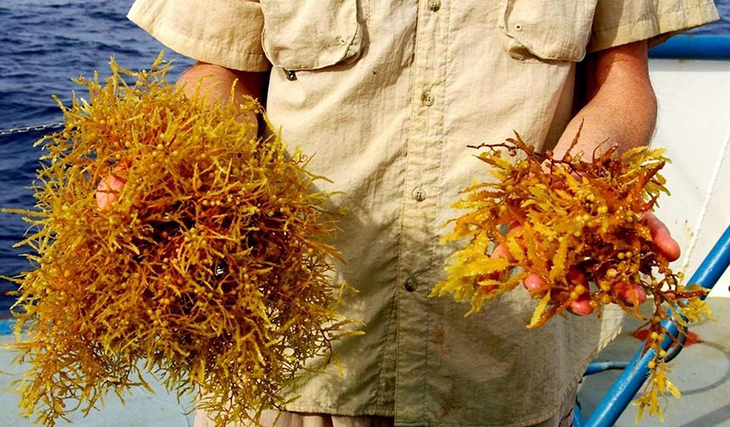
A compostable plastic wrap with the potential for large-scale production has been developed using an invasive seaweed species from the Caribbean. This innovative solution holds the promise of transforming the entire supply chain of the commonly used product, which is extensively utilized in restaurants worldwide.
The breakthrough originates from the University of Leeds in the UK, where Keeran Reed and his team sought to convert the brown seaweed species called sargassum (Sargassum natans) into a biopolymer. Sargassum consists of elongated molecular chains similar to those found in traditional plastics. Through a combination of acid, salt and specific chemicals, the researchers discovered that the seaweed could be made thicker and more pliable.
Subsequently, they transformed it into film sheets resembling regular plastic wrap to evaluate its performance under heated conditions and when subjected to composting. Unlike existing biodegradable plastics, which can take several months or even over a year to breakdown in compost heaps, the sargassum-based material decomposed in just two to three weeks.
Despite its rapid degradation, the film exhibited robustness and maintained its integrity at temperatures of approximately 450°F (230°C). Furthermore, the material did not release any chemicals when submerged in water for a period of ten days, making it safe to use as a cover for moisture-containing food containers, such as chopped fruit.
Koon-Yang Lee at Imperial College London, who is part of the research team, explained to New Scientist, “Studying the whole supply chain really is where ideas for sustainable materials make it or don’t. We want to find one best application for our material and study the environmental impact of pursuing it from the lab to the consumer.”
To determine the feasibility of mass production, it was crucial to assess the material’s flexibility and stretchiness under such conditions. In the current manufacturing process of plastic cling wrap, the plastic is shaped into sheets by blowing it into large bubbles.
If the existing production method proved unsuitable, the researchers would need to quantify alternative approaches’ water and energy requirements.
Known for its remarkable versatility, seaweed is being explored by a number of countries worldwide for various applications. For instance, diapers made from seaweed offer benefits for a baby’s skin. In Turkey and Denmark, seaweeds like algae are used as fuel sources for cars and airplanes. Australian scientists are employing seaweed to mitigate methane emissions from cows’ digestive systems. In the Netherlands, it is used to remediate harbor pollutants in Rotterdam.
Moreover, a startup spanning from the Baltic to the Caribbean is harvesting invasive algae to create diverse products ranging from packaging and food items to cosmetics.
What are your thoughts? Please comment below and share this news!
True Activist / Report a typo


